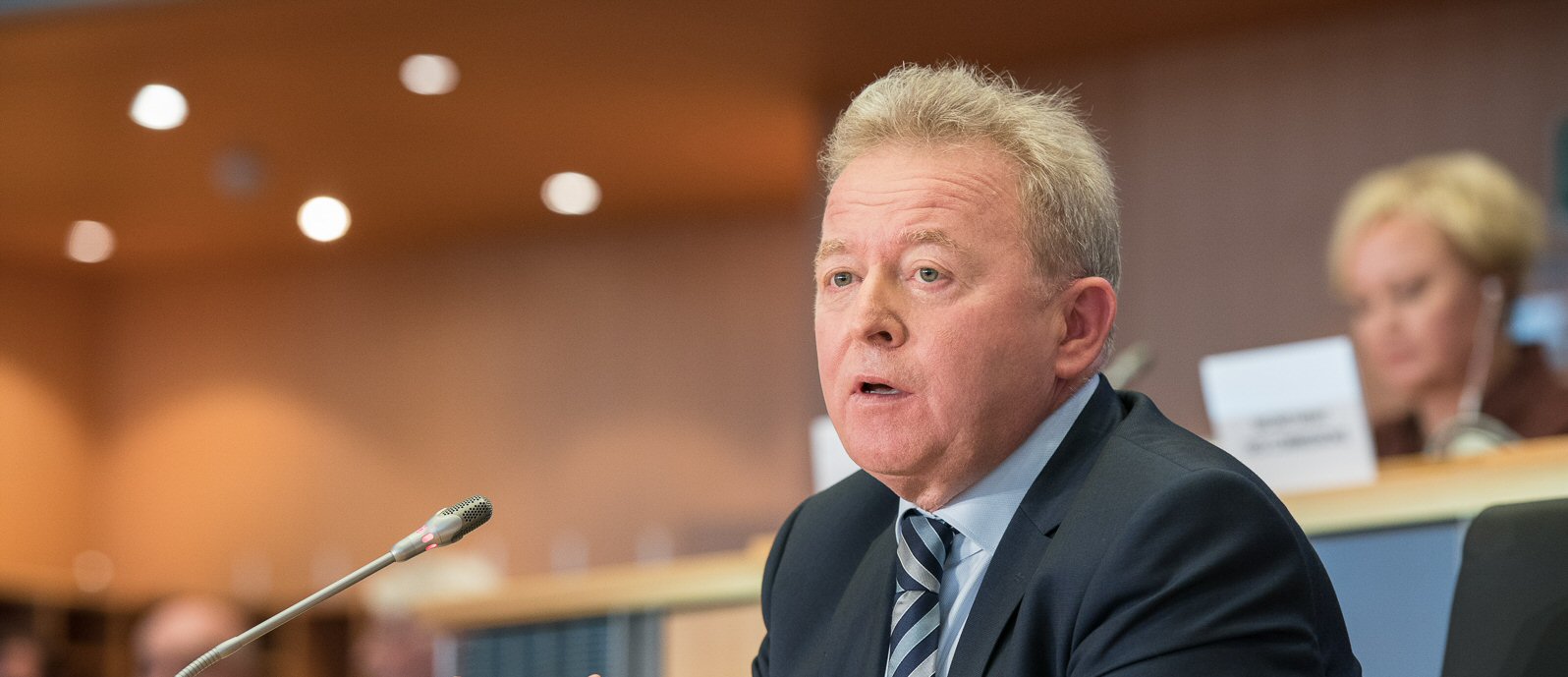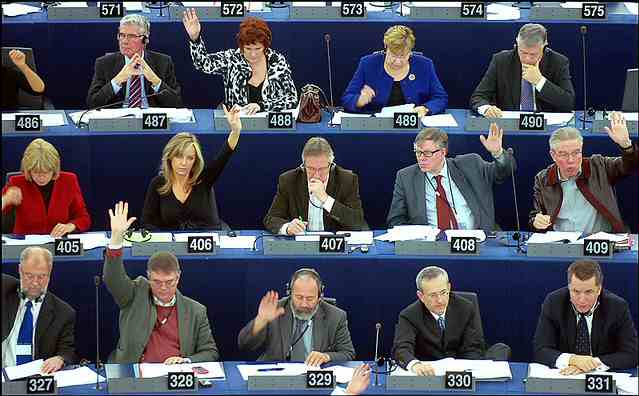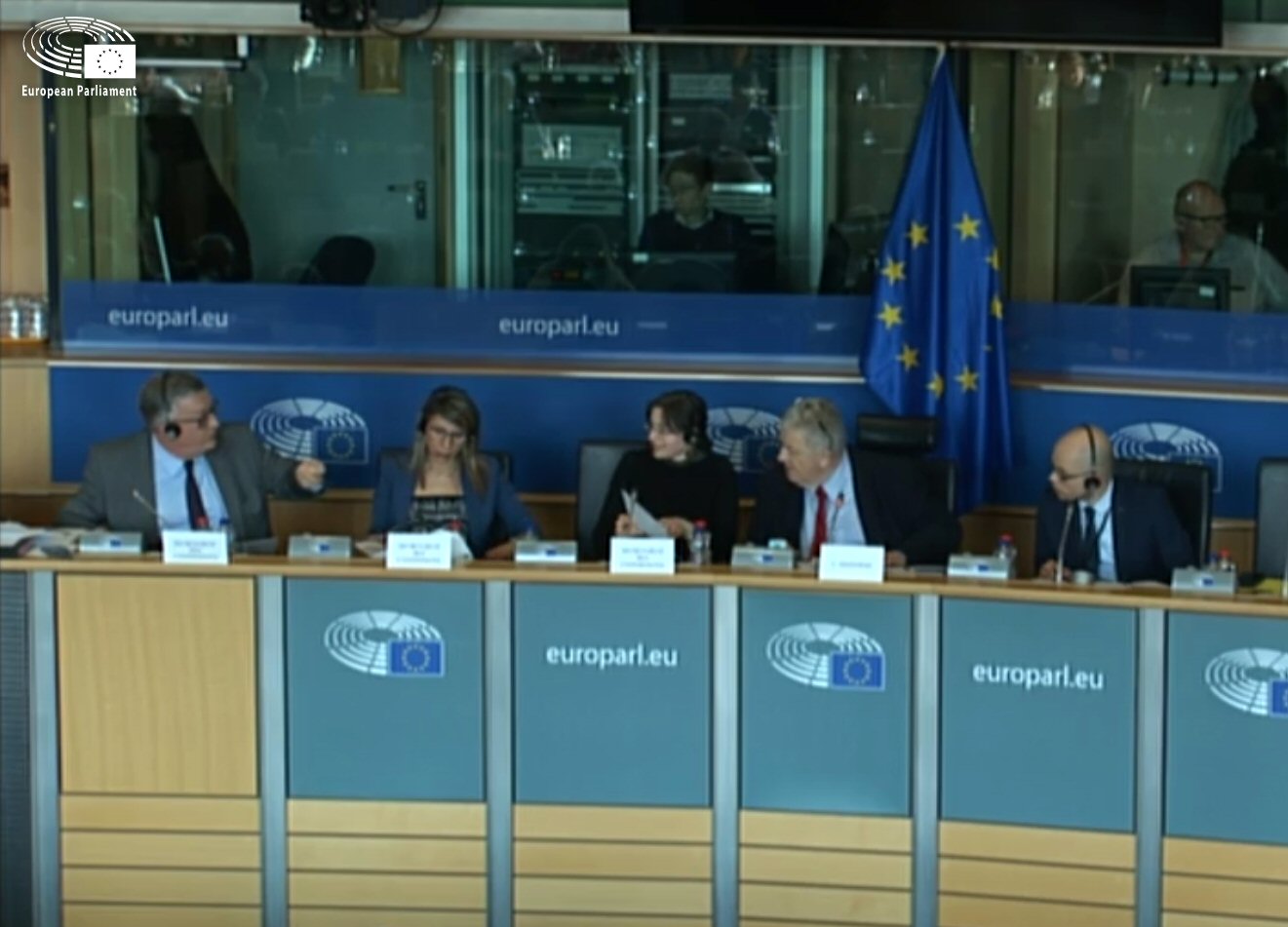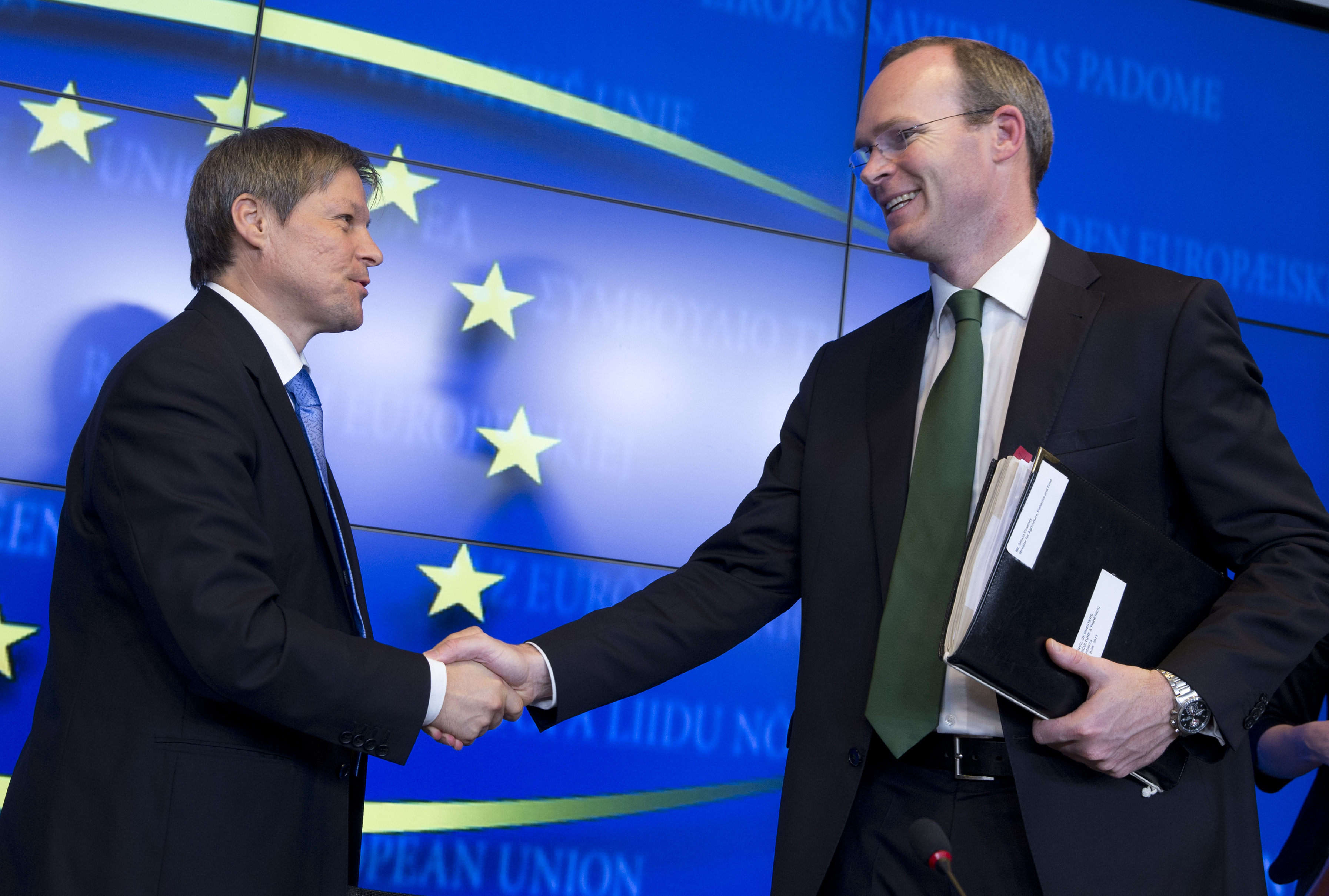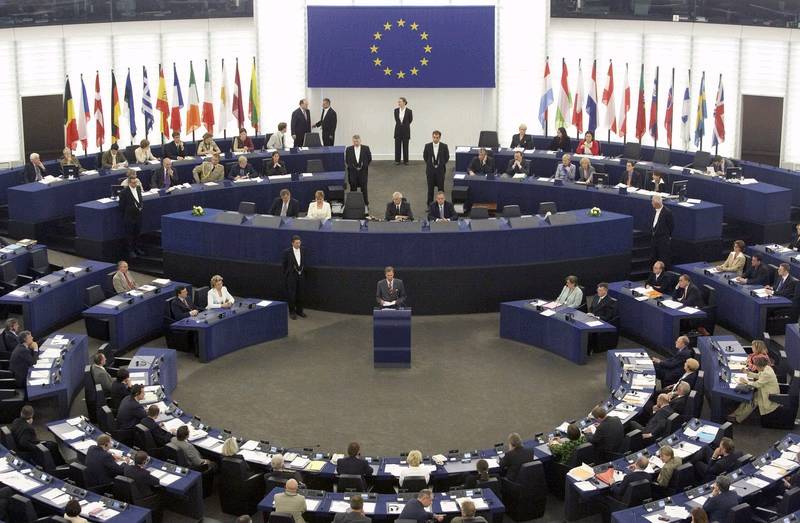The confirmation of Ursula von der Leyen’s nomination as Commission President by the European Parliament today may give the appearance of business as usual in the European Union for the coming political cycle 2024-2029. But this would underestimate the pressures for change under the apparent veneer of stability. The political priorities set out by von der Leyen as she sought support for her nomination on this occasion are subtly different to the Green Deal platform on which she sought support in 2019. This also applies in the area of agrifood policy, an area which has been marked by protests and policy reversals in the last year of her previous mandate.… Read the rest
European Parliament polling reaches tipping point for right-of-centre majority
Latest polling results from the three institutions that provide regular updates on seat projections for the European Parliament elections in June 2024 now point for the first time to the possibility that the three right-of-centre political groups – the EPP, ID and ECR – may have a majority of seats on their own in the next Parliament.
My previous synthesis of the seat projections in May 2023 (see my blog post here) showed that the left-of-centre groups – S&D, Greens and the Left – together with Renew were still slightly ahead of the right-of-centre groups though they would have required support from the independent MEPs – the so-called Non-Inscrits – to create an overall majority.… Read the rest
How might the political composition of the European Parliament change in the 2024 elections?
This post first appeared on LinkedIn on June 11, 2023 and is reproduced here without amendment. Since that date there have been national parliamentary elections in Greece and Spain which in many respects confirm the analysis presented here. Furthermore, it is now agreed to increase the number of seats in the European Parliament by 15, with additional seats going to France, Spain and the Netherlands (2 each) and 1 additional seat to Austria, Belgium, Poland, Slovenia, Slovakia, Finland, Latvia, Ireland and Denmark.
A couple of weeks ago the Council of the EU confirmed that the next elections to the European Parliament (EP) will take place from 6 to 9 June 2024.… Read the rest
Agriculture Commissioner-designate Wojciechowski stumbles at hearing
One piece of advice given to everyone who goes for a job interview is that you need to prepare. Commissioner-designate for Agriculture Janusz Wojciechowski seemed to have done limited preparation for his hearing in front of COMAGRI (with COMENVI as an associated committee) in the European Parliament earlier this week and failed to impress. As a result, he has been asked to respond to a fresh set of questions submitted by the Committee before it decides if it is willing to support his candidacy.
What will the European Parliament elections mean for CAP reform?
The European Parliament (EP)’s agricultural committee adopted its Opinions on the three CAP-related legal proposals earlier this month. However, lack of time during this Parliamentary session before elections take place to the EP at the end of May means that the Parliament itself will not vote on these Opinions until after the new Parliament reconvenes in July.
While the outgoing committee would like to see the new Parliament use its Opinions as the starting point for its plenary voting, there is no guarantee that this will be the case. The composition of the political groups in the new Parliament may be very different to what has existed in the current Parliament.… Read the rest
COMAGRI lacks full transparency in crucial votes
Th AGRI Committee voted its Opinion on amendments to the CMO Regulation on Monday 1 April, its Opinion on the Strategic Plan Regulation on 2 April and will vote its Opinion on the Horizontal Regulation on financing, management and monitoring of the CAP today 8 April. I plan to comment on the substantive outcome of these votes in the coming days. In this post I want to comment on a procedural aspect of these votes that I find does not live up to the norms of acceptable practice and which makes it impossible for anyone not in the inner circle to follow the voting on these Opinions.… Read the rest
Impact of the MFF negotiations on the CAP 2013 reform
The CAP 2013 reform was the first negotiated under the ordinary legislative procedure (co-decision) in which both the Parliament and the Council had equal powers. A project undertaken by the Centre for European Policy Studies in Brussels for the European Parliament’s Policy Department has sought to examine what impact and influence the Parliament had on the CAP 2013 out-turn as a result of co-decision. Did co-decision give the Parliament a greater opportunity to influence the final outcome, who were the key players in shaping the Parliament’s views and what did the Parliament use its influence to achieve?
The final study, when it is published, will throw light on these issues.… Read the rest
The Reform of the CAP: One Year After
Almost exactly a year ago the legislative bodies of the European Union accepted 4 new key Regulations that will determine the next period’s CAP. The Commission presented this reform, utilizing the label ‘Greening’, as a shift of paradigm and an introduction of certain other important changes in both the goals and the instruments of European agricultural policy. The essence of the new reform was to find a new justification for and mechanisms of agricultural policy. The reform, which took place in times of economic crisis, was accepted after the Lisbon treaty; as such it was characterized by a new form of legislation which equalized the roles of the European Parliament and Council as key legislators.… Read the rest
How MEPs voted on CAP reform
The website VoteWatch Europe monitors the voting of MEPs on each resolution and piece of legislation. It published the following commentary on the CAP reform voting earlier this month (thanks to Xavier Pavard @xpavard on Twitter for drawing attention to this source) which I reproduce here.
(Note: Right click on the images below and select Show picture to get clearer view of the graphics)
… Read the restCentre-right wins battle over CAP reform; net contributor country MEPs outvoted
MEPs voted on a package of four legislative proposals that make up the reform of the Common Agricultural Policy (CAP). The subject was hotly debated, as CAP currently accounts for close to 40% of the EU budget.
The legislative timeline for CAP reform
The publication of the Commission’s legislative package for CAP reform is merely the starting gun for the EU’s legislative procedure to debate the regulations before they can take effect. The regulations now enter the co-decision procedure involving the Council of Ministers and the European Parliament (EP).
In an article this week in the Irish farming press, Mairead McGuinness set out the timeline as seen from the Parliament’s perspective. Mairead McGuiness is the EPP Group shadow rapporteur for the direct payments report contained within the legislative package, and thus centrally involved in formulating the EP’s position.
According to McGuinness, the current timeline envisages that draft reports will be prepared for consideration by the Agriculture Committee by April next, with a vote in Committee taking place in September on the changes proposed by MEPs.… Read the rest



